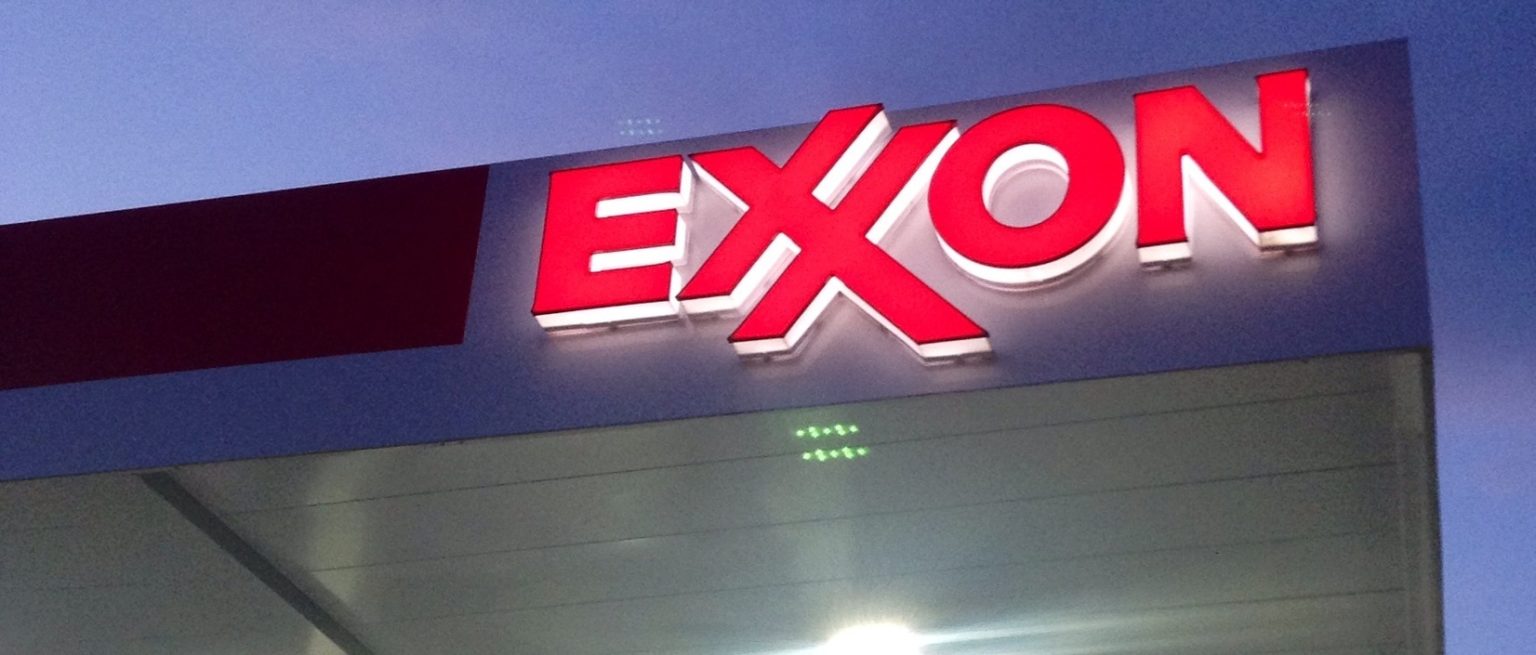It’s all a bit weird. After a shareholder vote, Exxon again finds itself in the unaccustomed position of being out ahead of the US government on climate change action.
At the company’s AGM yesterday, shareholders agreed to force the company to disclose the impacts of stringent climate policy on its business model. Exxon’s management were against the move.
The resolution doesn’t actually require Exxon to take action to cut its emissions. It just says the company must tell investors how the value of its business might be affected if the world really started to take climate policy seriously.
In particular, it states that Exxon must report how policies to curb global warming to two degrees above pre-industrial levels impacts the value of its fossil fuel reserves.
The resolution was forced through by investors controlling 62 percent of Exxon’s shares. Last year, a similar resolution received the support of shareholders controlling about 38 percent of Exxon’s stock.
Edward Mason, the Church of England’s head of responsible investment, who pushed voters to accept the resolution, told DeSmog UK he hoped Exxon “will move quickly to provide the two degree analysis that investors expect from the oil and gas majors.”
He said that shareholders taking responsibility and pushing for change inside the company was more effective than simply selling stock — as the divestment movement encourages.
“We firmly believe that active stakeholders have a role to play in the years to come and that strategic corporate engagement is too powerful a tool. Our active engagement and voting record, provide greater leverage and influence than we could ever hope to achieve by acting alone or by simply selling our holdings”, he said.
Mark Campanale, executive director of thinktank Carbon Tracker, agrees. He said the vote showed that shareholders were increasingly concerned about how climate policy affects fossil fuel companies’ business models, even if the corporations themselves are keen to avoid the issue. He told DeSmog UK:
“The Exxon shareholder resolution typifies how shareholders want to understand each company’s relative position in the future global supply of fossil fuels. High-cost producers won’t survive and investors need to know how viable Exxon’s business model is in a carbon-constrained world.”
“Every company will now have to compete to see if their projects fit within the constraints imposed by the science of ‘carbon budgets’. Not every company, not every project can be winners.”
Exxon’s decision comes hot on the heels of similar votes by two more minor energy companies, Occidental Petroleum and PPL Corp. Not all companies are on board, however.
Shareholders of one of Exxon’s big oil competitors, Shell, last week voted against a resolution to adopt internal targets for its greenhouse gas emissions.
Robert Schuwerk, Carbon Tracker’s senior counsel in the US, said this shows investors want fossil fuel companies to do more than just the minimum when it comes to reporting the risks climate change poses to their businesses:
“Some company climate risk reports, such as Chevron’s, may have bought the company some additional time but we should not forget that Exxon also issued a report in 2014 and because of its shortcomings, is now facing a revolt on the issue. This demonstrates that for many investors, this is not about the company simply ‘checking the box.’”
Whether those reports translate into action remains to be seen. The danger for Exxon, according to Jamie Henn, strategic communications director for campaign group 350.org, is that the company’s report will highlight just how bad its core business is for climate change.
“Any real climate risk assessment will show that Exxon’s drill-baby-drill business plan is incompatible with a livable planet. Despite shareholder protests, they’re still doubling down on fossil fuels when the world is moving in the opposite direction. Exxon’s refusal to adapt their business model to a carbon constrained world should send investors running for the exits.
“An investment in Exxon is still an investment in climate chaos. Until Exxon commits to keeping fossil fuels in the ground, investors have a moral obligation to move their money elsewhere.”
Main image credit: Mike Mozart via Flickr CC BY 2.0. Updated 01/06/2017: A quite from Jamie Henn was added.
Subscribe to our newsletter
Stay up to date with DeSmog news and alerts






